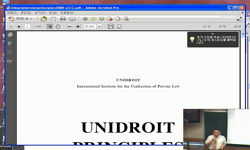Purpose – Korea became a trillion-dollar trading country in 2011. With the exponential increase in Korea’s trade volume over the past decades, trade-related administrative burdens per capita for Korea Customs became enormous, for which the governm...
http://chineseinput.net/에서 pinyin(병음)방식으로 중국어를 변환할 수 있습니다.
변환된 중국어를 복사하여 사용하시면 됩니다.
- 中文 을 입력하시려면 zhongwen을 입력하시고 space를누르시면됩니다.
- 北京 을 입력하시려면 beijing을 입력하시고 space를 누르시면 됩니다.
부가정보
다국어 초록 (Multilingual Abstract)
Purpose – Korea became a trillion-dollar trading country in 2011. With the exponential increase in Korea’s trade volume over the past decades, trade-related administrative burdens per capita for Korea Customs became enormous, for which the government established the Single Window, a tradefacilitating system, in 2004 to enhance the efficiency of customs-clearing procedures for traders. This paper focuses on finding whether the Korean Single Window system affects the country’s trade facilitation positively through an empirical methodology.
Design/methodology – To find empirical evidence that Single Window affects trade facilitation for the customs-clearing procedure, this study assumes that a time-efficient environment enables the handling of the increase in trade volume, under which four independent variables related to import customs-clearing procedures and two dependent variables to import were adopted for empirical analysis. The import customs procedures are classified into four steps from port entry to declaration acceptance. To understand the relationship between variables, scattered plots and correlation coefficients were calculated. Eight hypotheses were set and underwent simple linear regression. The data for analysis were collected by Korea Customs, and were about the lead time of import, the volume of imports in million USD, and the number of import declarations reported to customs offices on a monthly basis from 2005 to 2013.
Findings – Six of the eight hypotheses showed the statistically significant result that lead time in the import customs-clearing procedure positively affects the number of import declaration reports and import volume. Specifically, Hypothesis 1, Hypothesis 2, and Hypothesis 3 strongly support the assumption lead time in import customs declaration has an inverse relationship with the number of import declarations, which means that the shorter the import lead time, the more import declaration increases.
Research Limitations/Implications – With limited data accessibility to the government’s customsclearing procedures, only the import lead time for customs clearance were adopted as independent variables. This paper, however, successfully found that the Single Window system contributed to trade facilitation.
Originality/value – This study found that the time-saving Single Window system of Korea Customs enables itself to manage an exponentially-increasing trade volume by creating a trade-facilitating environment for customs personnel and traders, which may be a unique implication found through quantitative methodology.
동일학술지(권/호) 다른 논문
-
Has Container Shipping Industry been Fixing Prices in Collusion?: A Korean Market Case
- 한국무역학회
- 윤재웅
- 2023
-
- 한국무역학회
- 안소영
- 2023
-
Investment and Firm Performance Variability
- 한국무역학회
- 여희정
- 2023
-
- 한국무역학회
- 김석규
- 2023




 ScienceON
ScienceON 스콜라
스콜라




